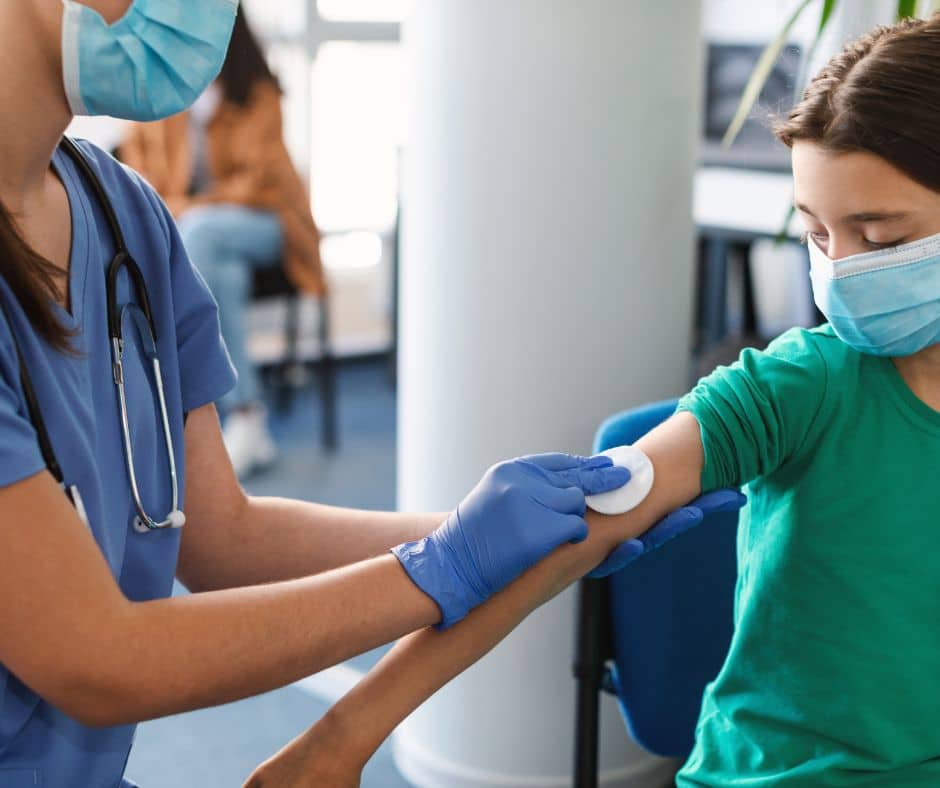HPV Vaccine in the UK
What is the HPV vaccine?
The HPV vaccine protects against human papillomavirus (HPV), a common group of over 200 viruses. Most people will contract HPV at some point, but the vaccine significantly reduces the risk of developing related cancers, including cervical cancer and head and neck cancers.
What Does the HPV Vaccine Do?
HPV is usually harmless, but certain high-risk types of the virus can lead to cancer in a small number of cases. The HPV vaccine protects against the most dangerous strains, preventing many future cases of HPV-related cancers and other conditions, such as warts.
HPV Vaccine and Cancer Prevention
The HPV vaccine protects against the high-risk HPV strains that can cause:
- Head and neck cancers (especially in the tonsils, base of the tongue, and throat)
- Cervical cancer
The vaccine is one of the few that can actually prevent cancer. In fact, it’s estimated that by 2058, the HPV vaccine could prevent more than 100,000 cases of cancer in the UK alone.
Who should have the HPV vaccine?
The vaccine is routinely offered to all boys and girls aged 12 to 13 (school year 8). This typically happens during the Autumn term, with vaccinations scheduled for January or February. If your child missed their vaccine, they can still catch up through their school nurse, GP, or vaccination team.
If you are under 25 and have already received one dose by September 2023, you are considered fully vaccinated. Those who missed the vaccine can still catch up before their 25th birthday by contacting their GP.
Who shouldn´t have the HPV vaccine?
Most people can safely receive the vaccine. However, if you’re feeling unwell with a high temperature, it’s best to wait until you’re better. There’s no evidence that the vaccine causes infertility, and it’s safe for people who are breastfeeding. Although it’s not harmful during pregnancy, your doctor may recommend waiting until after delivery.

HPV vaccine ingredients
The vaccine used in the UK is Gardasil 9, which protects against the main high-risk HPV strains (16, 18, 31, 33, 45, 52, and 58) and two low-risk strains (6 and 11). It contains no porcine ingredients and is halal. For more details, you can check the patient leaflet here.
Gardasilâ9 HPV vaccine patient leaflet (Electronic Medicines Compendium website).
How to get the HPV vaccine
- Children aged 12-13 (school year 8): through secondary school, or community clinics if not in school.
- Girls under 25 and boys born after 1 September 2006: if they missed the vaccine at school, they can check with their school nurse, GP, or local vaccination team.
How the HPV vaccine is given?
The HPV vaccine is given as an injection in the arm. The number of doses depends on your age and immune system:
- Under 25: Usually requires one dose.
- Ages 25-45: May require two doses, depending on medical advice.
- People with weakened immune systems: Require three doses over 12 months.
Side effects of the HPV vaccine
The HPV vaccine has been safely used in the UK since 2008, with over 10 million doses given. It’s also widely used in more than 80 countries, including the US, Australia, and Canada.
Common side effects are mild and short-lived, including:
- Swelling or soreness at the injection site
- Headache
- Fatigue
- Mild fever
- Nausea or dizziness
Serious side effects, such as an allergic reaction, are extremely rare, and the medical staff administering the vaccine are trained to handle such situations.
Final Thought
The HPV vaccine is a proven way to protect against cancers that can change lives. It’s a vital part of cancer prevention, and its widespread use will help protect future generations. Supporting the Sign Away Cancer campaign helps ensure that more people are protected. Prevention starts today!
HPV vaccine podcast




